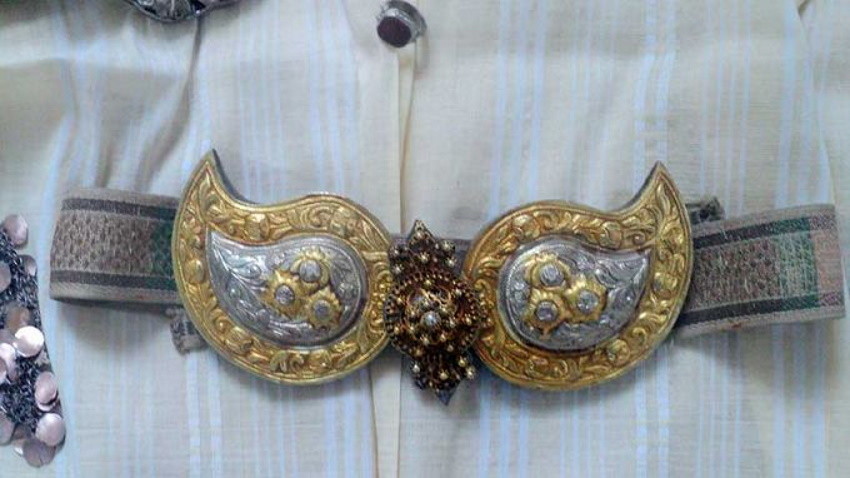Belt buckles, called pafti are a typical Bulgarian folklore ornament. You will easily recognize them as an element of folk costumes from various regions of Bulgaria. These decorative accents from traditional Bulgarian clothing can be found oval-shaped; they could be cast, or forged. Usually, they are covered mainly with floral ornaments, and sometimes they have nacre decorations. In some buckles one also finds animal motifs. Peacocks, pigeons, two-headed birds and snakes seem to come to life on them.
The history of pafti in Bulgarian lands takes us back to the Middle Ages, when they used to show the social status of men. Archaeological discoveries near the village of Madara reveal that buckles were forged in the area as early as the 9th - 10th century, and were mass-produced during the Second Bulgarian Kingdom /1185-1396 /.

After the fall of Bulgaria under Ottoman rule in the 14th century, Bulgarians lost their military power. That is why pafti gradually become part of the women's folk costume, symbolising guardians of the most important part of the body - the reproductive organs. Traditionally, they are worn only by married women after receiving them as a gift at their engagement or wedding.
In the second half of the 18th century, elements of the Baroque style appeared on the buckles. And in some of them whole biblical scenes are depicted - Christmas, Annunciation, Resurrection.
However, at the beginning of the 20th century, folk costumes began to give way to modern urban clothing and pafti gradually disappeared from the wardrobe of Bulgarians to take their place in the museum or in the dusty chests of our grandmothers.

You will learn more about this unique decorative element of the traditional Bulgarian clothing from an article from Radio Bulgaria’s collection: Bulgarian belt buckles and the secrets they hold
English: Alexander Markov
Photos: pixabay, BNR-archive, botevgrad.comPalm Sunday, Tsvetnitsa in Bulgarian (the word comes from tsvete , flower) is a Christian holiday loved and looked forward to by many, commemorating the Jesus Christ’s triumphal entry into Jerusalem. It is a moveable feast, always falling on..
Sunday after Mesni Zagovezni or Meat Shrovetide is the last day on which everyone who decides to follow the Great Lent according to the Orthodox calendar can eat dairy products, fish and eggs. Therefore, on Cheesefare Sunday before..
Diko Iliev- composer, conductor, a sui generis talent, a unique phenomenon in Bulgarian culture - authored dozens of marches, waltzes, horo chain dances, ruchenitsi and brass band music . For decades, Diko Iliev’s Dunavsko Horo has been..

+359 2 9336 661
